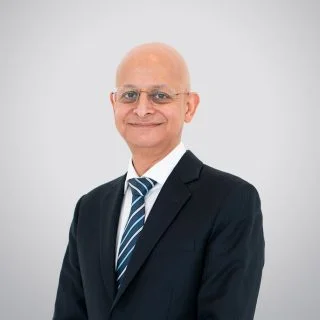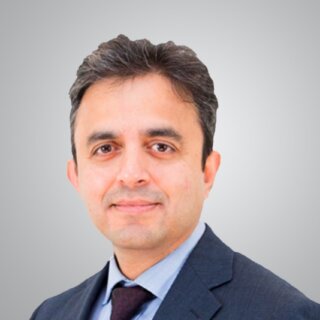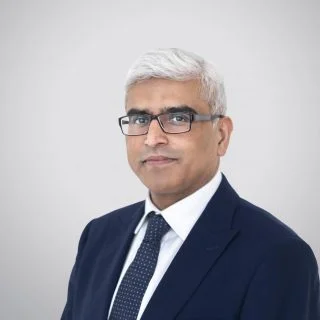Complex Endometriosis Surgery for Severe Endometriosis with Deep Infiltrating Endometriosis
Endometriosis is a common or the most common Medical condition which is the least recognised. 1 in 10 women suffer with endometriosis at least and at least 4% – 20% have severe endometriosis with presence of Deep infiltrating endometriosis in bowel, recto-vaginal, tubes, ovaries and deep pelvis including extrinsic and intrinsic ureteric and bladder. These are the most difficult to manage and have the severest symptoms that affect the quality of their life, work and fertility.
Endometriosis is a poorly diagnosed disease and even more poorly managed, and unfortunately women end up with repeated surgery due to the lack of expertise in this field.
Complications of Deep Infiltrating Endometriosis
If Deep Infiltrating Endometriosis is present in the bowel & pelvic side wall, and it’s not accurately diagnosed and surgically removed, the disease can progress. Known complications include:
- Bowel obstruction due to adhesions
- Rectal bleeding
- Fistula
- Hydronephrosis that can lead to loss of renal function
- Loss of fertility
Unfortunately, most women go to a general surgeon and/or urologist, where the chances of a diagnosis of severe endometriosis is highly overlooked.
Management and Surgical Removal of Deep Infiltrating Endometriosis
Treatment of endometriosis follows three principles: alleviation of pain, improvement of fertility and prevention of progress or recurrence, which is achieved either via medical or surgical approach.
Medical management of Deep Infiltrating Endometriosis is only suitable for a select group of patients. However, if endometriotic cysts are present, then medical management is of no value. Evidence in the literature vast supports surgery to remove the disease and improve quality of life as well minimising long-term complications and disability. However, treatment is individualised depending on each woman needs.
Risk of ovarian cancer in women with endometriotic cyst is at least doubled hence Laparoscopic excision is recommended especially in women above the age of 40.
Endometriosis is a chronic recurrent disease, and Laparoscopic complete excision is associated with better quality of life and less risk of recurrence. However, endometriosis need long term management and a centre provides a specialised, up to date experienced approach to endometriosis.
The Royal College of OBG and British and European Society of Gynae Endoscopy (BSGE/ESGE) endorsed surgical management of Deep Infiltrating Endometriosis and set up BSGE accredited Endometriosis centres in the UK to have such surgeries performed as they need specialist expertise and support including multidisciplinary teams support.
Advantages of MDT approach:
- The management of deep endometriosis of the posterior cul de sac is considered to be an area of surgical complexity with a potential for complications hence the BSGE set up accreditation for endometriosis centres.
- Endometriosis centres for management of severe endometriosis provide effective and comprehensive care and engage in high-quality research. The centre also aims to further the education of both patients and Medical professionals in endometriosis and chronic pelvic pain.
- Optimal management of pelvic pain and endometriosis requires an integrated, interdisciplinary approach.
- Recommended by the European Society for Human Reproduction and Embryology (ESHRE), European Society for Gynaecological Endoscopy (ESGE) and British Society for Gynaecological Endoscopy (BSGE).
- The multidisciplinary approach to the management of patients with endometriosis leads to better results in patient outcomes with less complications with less repeated surgery and that would reduce the health cost implication as shown by the American college of OBGYN.
- A centre offering advanced diagnostics, a full range of medical and surgical treatments, dedicated nursing services, physiotherapy, counselling, patient education, and support group for patients reflect on the medical excellence of the facility and attracts patients.
- Complex endometriosis surgery requires considerable surgical skills and expertise, as it is often close to vital structures like the ureter, bladder or bowel. Hence outcome, patient satisfaction and surgical complications in Endo centres is significantly higher.
- According to NHS commissioning and NICE, it is best performed using laparoscopic surgery with two skilled laparoscopic surgeons working together, as this enables excellent visualisation of the deep pelvis which facilitates the very delicate surgery required and joint expertise enables joint decision making during critical steps of the operation.
- Endometriosis centre will attract patients as its synonymous with high standards and quality of care and services of the facility.
Endometriosis Team at King’s:
- Dr Marlain Mubarak – Consultant OBGYN
- Dr Ibrahim Abd Elrahman – Consultant OBGYN
- Dr Atif Alvi – Consultant Colorectal, Laparoscopic & General Surgeon
- Dr Samer Obeidat – Consultant Urologist
- Dr Rizwan Hamid – Consultant Urological Surgeon
- Dr Heba Ibrahim – Specialist Diagnostic Radiologist
- Pain Management Anaesthetist
Go back to Endometriosis page
Go back to Gynaecology page
Faqs
الأسئلة الأكثر شيوعا
Endometriosis is a condition where the endometrium, which is the tissue that lines the uterus, grows elsewhere in the body, mostly in the ovaries, pelvis, and fallopian tubes.
Endometriosis usually affects women who are in their menstruating years, also known as their reproductive years. These are the years between the onset of menstruation until menopause.
Pelvic pain is a top symptom of endometriosis. The pain often occurs during ovulation, with menstruation, and/or in connection with sexual intercourse. However, a woman with endometriosis can also experience pain at other times during her monthly cycle. Other symptoms include infertility and severe fatigue.
Undergoing a laparoscopy – a small surgical procedure – is the only sure way of diagnosing endometriosis. However, many doctors are able to diagnose endometriosis based on a woman’s symptoms and can start treatment on that basis.
Not at the moment, but it can be treated and it is possible to manage its symptoms through a combination of long-term treatments.
Although the cause of endometriosis is not yet known, it is not an infectious disease, and it cannot be transferred from one human to the other.
According to research, first-degree relatives of women with endometriosis have a seven-fold risk of developing the medical condition.
About 30-40% of women with endometriosis may have difficulties becoming pregnant. This means that 60-70% will not have problems. It is important to discuss this with your doctor if fertility is a great wish for you so a treatment plan can be developed for you.
Some women chose to have a hysterectomy as a last resort. But this does not guarantee complete pain relief. However, if you do choose to have a hysterectomy, it is important that all the endometriosis is removed at the same time.
No. However, the pain symptoms of some women are reduced during pregnancy. But, in most cases, the endometriosis returns after giving birth and stopping breastfeeding.
Endometriosis cysts are sometimes referred to as benign tumors due to their similar behavior to cancer, but endometriosis is not the same disease.
Dr Ibrahim Abd Elrahman and Dr Marlain Mubarak are considered the best Endometriosis doctors in Dubai.
King’s College Hospital London Dubai has the best Endometriosis centre in Dubai.
BOOK AN APPOINTMENT




